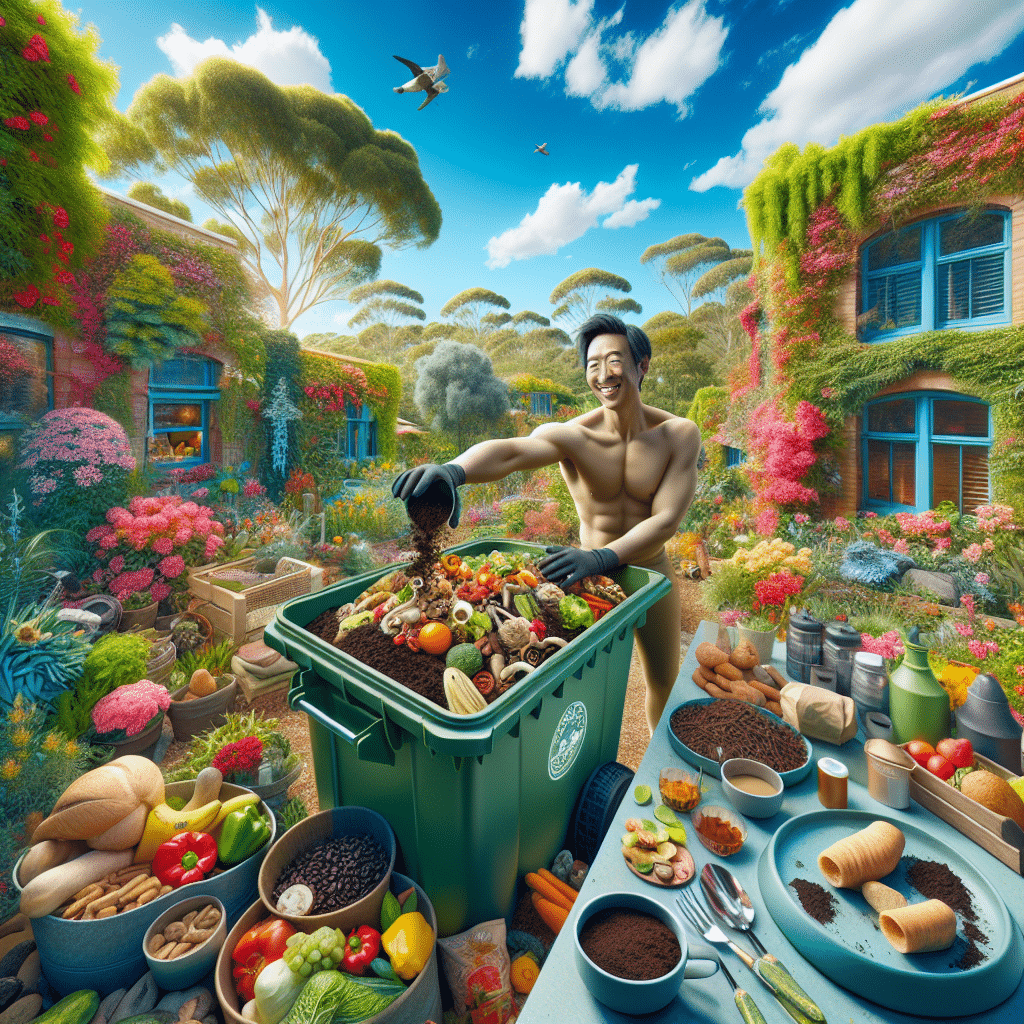
Table of Contents
Essential Steps to Start Your Compost Bin in Australia
Starting your own compost bin can be one of the most rewarding decisions you make for your garden and the environment. Composting not only reduces waste but enriches your soil, supports plant growth, and helps create a sustainable ecosystem. If you’re in Australia, we’re here to guide you through the essential steps to starting your compost bin. With the help of Brisbane South Skip Bins, your composting journey can be both pleasant and efficient.
Why Start Composting?
Before diving into the “how,” let’s discuss the “why.” Here are some compelling reasons to start composting:
- Waste Reduction: Composting helps divert organic waste from landfills, reducing the amount of rubbish that ends up in landfill sites.
- Soil Enrichment: Compost adds valuable nutrients back into the soil, improving structure, texture, and moisture retention.
- Environmental Benefits: It reduces greenhouse gas emissions by preventing methane production in landfills and promotes healthy ecosystems.
- Cost-Effective: By producing your own compost, you reduce the need for store-bought fertilizers and soil amendments.
Choosing the Right Location
The first step in initiating your compost journey is selecting the best location for your compost bin. Here are some tips:
- Sunlight Exposure: A sunny spot helps to keep your compost a bit warmer, which can speed up the decomposition process.
- Accessibility: Ensure your compost bin is easily accessible for adding materials and turning the pile.
- Drainage: Avoid placing your compost bin in wet areas that can become boggy; proper drainage is key to preventing odour and pest issues.
Choosing a Compost Bin
You have several options when it comes to compost bins, whether you’re DIY-inclined or prefer a ready-made solution:
- Wire Bins: Inexpensive and allows for airflow, but may need some structure for stability.
- Plastic Bins: Lightweight, durable, and often come with a lid—ideal for keeping pests out.
- DIY Bins: You can create your own composting space using pallets, chicken wire, or even a simple pile in your garden.
What to Compost
Knowing what to put into your compost bin is crucial. Generally, you want to aim for a balance of “green” and “brown” materials:
- Green Materials:
- Vegetable scraps
- Fruit peels and rinds
- Coffee grounds
- Grass clippings
- Brown Materials:
- Dry leaves
- Pine needles
- Cardboard and paper
- Wood chips or sawdust (untreated)
Remember to avoid composting meat, dairy, and oily foods as these can attract pests and create unpleasant smells. Additionally, be cautious with diseased plants and invasive weeds as they can survive the composting process.
Maintaining Your Compost Bin
Once you’ve set up your compost bin and started adding materials, proper maintenance is key to expanding your success:
- Tumbling: Turn the compost pile every few weeks to aerate it and speed up decomposition.
- Moisture Levels: Ensure your compost is not too dry—if it feels like a dry sponge, add some water, or if it’s too wet, add more browns.
- Temperature Monitoring: The ideal composting temperature is between 55°C to 65°C. This warmth helps kill off pathogens and weed seeds.
When to Harvest Your Compost
After a few months, it’s time to reap the rewards of your efforts. Here’s how to know when your compost is ready:
- The compost should look dark and crumbly, similar to rich soil.
- It should have an earthy smell rather than a foul or rotten odour.
- Most of the original materials should have broken down completely.
Once you’ve determined your compost is ready, you can use it to enrich your garden beds, pot plants, or any other green areas around your home.
Compliance With Local Regulations
Before starting composting in Queensland, it’s always good practice to check local regulations regarding composting. While composting is a sustainable practice encouraged by councils across Australia, certain guidelines may govern composting yard waste or specific materials. For Brisbane, Logan, and Ipswich residents, you may refer to local government guidelines to stay compliant.
Brisbane South Skip Bins – Your Partner in Sustainability
Should you find yourself with excess waste while starting your composting journey—whether from garden cleanups or other renovations—look no further than Brisbane South Skip Bins. Our services cater to Brisbane, Logan, and Ipswich, helping you dispose of materials responsibly while you create your compost. We make it easy to reduce waste and contribute to a more sustainable environment.
In conclusion, composting is a rewarding and eco-friendly practice that offers numerous benefits for the environment and your garden. By following these essential steps, you can create a productive compost bin and join the movement towards a greener Australia. So roll up your sleeves, get composting, and remember, Brisbane South Skip Bins is just a call away for all your waste disposal needs!
About Brisbane South Skip Bins
Brisbane South Skip Bins offers comprehensive Skip Bin Hire Services for local household, Industrial, and commercial clean up. Affordable Skip Bin Hire – Brisbane South, Logan, Beaudesert and Ipswich
We can help you get rid of all types of unwanted rubbish, making the removal process easy, and saving you from having to load up trailers and make multiple trips to the rubbish tip.
Whether you’re renovating, landscaping, or doing a garden cleanout, we can take care of all your waste materials and unwanted items.
Our skip bins come in a range of sizes to accommodate all your removal needs.
Talk to Mick 0466 776 314 for help choosing the right type skip bin for your needs and save you money.
https://www.brisbanesouthskipbins.com.au/
#skipbinhirebrisbane #skipbinhirelogan #skipbinhirebeaudesert #skipbinhireipswich







